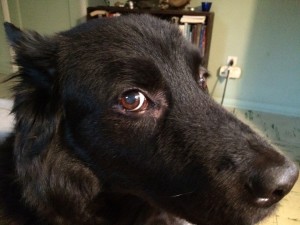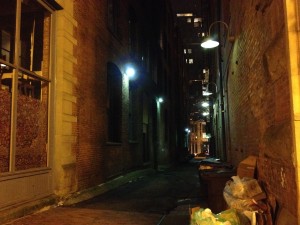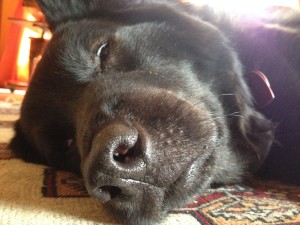
Last year, a burglar bit my hand.
About 1:30 in morning, I thought the kid was up sneaking video games, so I pulled on my robe and went out to say “Go the f*ck to sleep.” But just as I reached my bedroom door, I heard the front door spring twang. I rounded the corner and there was a man in our landing.
I grabbed the back of his jacket, spun him around and said, “What the fuck are you doing in my house?”
He bit me.
I’m told I screamed.
I don’t remember that bit.
What I do remember is tackling him, hearing him say, “Run, Vinnie,” while I yelled for my husband to come help. The dog, who’d started new arthritis drugs that day, realized he should start barking. In the background, I could hear our son on line with 911.
Burglars are stronger on the ground.
He squirmed and wriggled and generally tried to get away. The burglar stank of aged sweat, alcohol and drugs. I told my husband to get his leg. He told me that was his leg. My husband grabbed the burglar’s flashlight and hit him in the head.
He yelled about his cabeza (Spanish for head).
I leaned over him and cursed him and his entire family.
He cried for his Mamacita.
The police arrived and an adrenaline drive blur of checking the house and giving statements accompanied a review of the burglar’s pockets. They emptied them on the hood of a police SUV. There was my jewelry along with three large knives.
The canine unit went after Vinnie.
One set of cops thought my dog had bitten me. The paramedics thought it was the canine unit. I was insulted that they’d besmirch either dog and explained it was a HUMAN bite. At which point they informed me that I needed to go to the hospital.
Human bites require antibiotics to make sure you don’t end up with a nasty infection. What they don’t tell you is that you can get HIV, herpes and hepatitis. What few law enforcement and legal officials seem to know is that in Washington state, you can’t get a search warrant for a burglar’s blood, not if you’re just the victim.
If you’re a good samaritan, healthcare provider or law enforcement official, getting the blood is automatic. The victim of a sexual offender? You wait until conviction. Me? You depend on the kindness of the guy who just sank his teeth into your flesh.
The burglar plead out. In exchange for dropping a drug charge, he gave up his blood. My blood work is okay, but the months of nerve and tendon damage forced me to restrict writing to paid-as-I-go tasks. Turns out I’m not great at dictating stories. I need to feel my hands on the keys or a pen.
And my hand needed time to heal, including the use of contrast baths. My skin smelled like me, but the spent water? Whenever I would dump it, I would get a whiff of burglar sweat. I kept at the contrast baths until the smell came up clean.
Embarrassed, our dog is now off his meds and barking furiously if a squirrel farts and there are alarms on all our doors.
Vinnie got away. The biter got 23 months. Despite my insistance that they get him into a rehabilitation program, I suspect he’s just being warehoused. I Googled the guy as soon as I had his name. We were his sixth offense. This is how he makes his living. My hope is that he can find something else to do, so no one else has their life stalled by a bite. And, yes, when all of the more pressing political issues settle down, I plan to work on changing Washington state law so that no one has to beg to make sure they haven’t just contracted a deadly disease.





